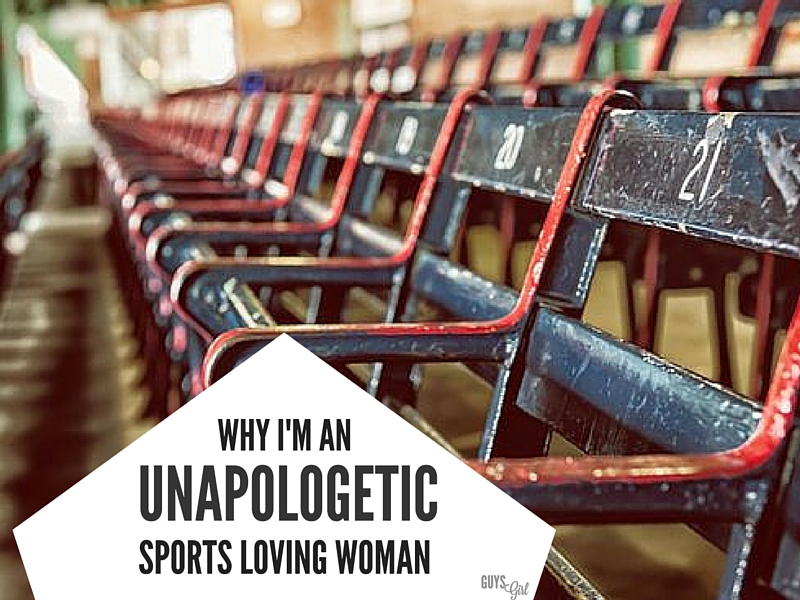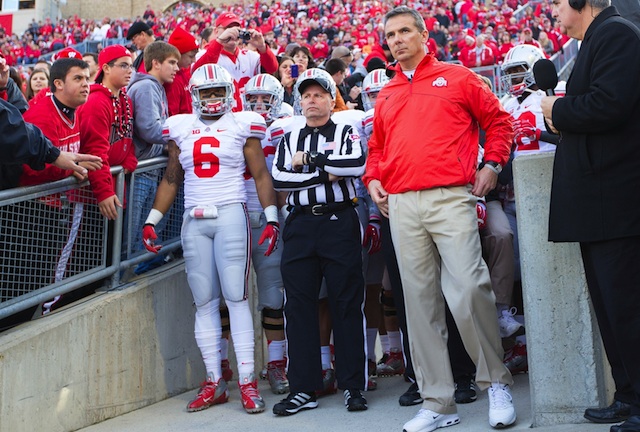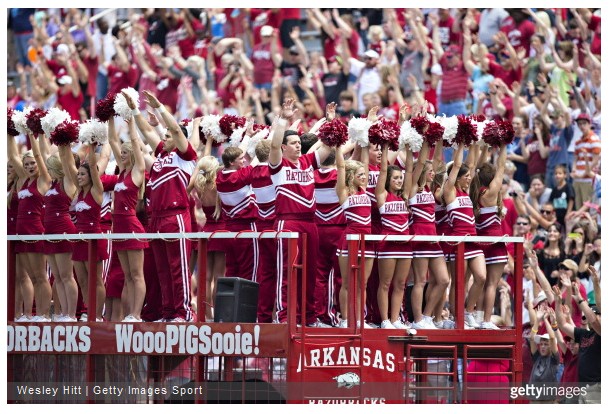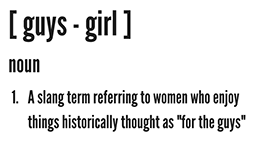Years ago when ESPN first aired “Let Them Wear Towels,” we’ve become more aware of the day-to-day struggle women writing about sports have faced. But decades after women were first allowed in the locker rooms, we still face challenges that require us to continue to put our nose to the grind. Here’s Heather’s story on her journey to becoming an unapologetic sports-loving woman…
An eight-year-old inspired me. She recognized me as the true sports nerd I am, even after very little interaction. This young girl spoke to me so passionately about all the sports she loves: football, soccer, softball…. I saw myself in her. Sure, it took me a few extra years to grow into my sports-self compared to her, but her enthusiasm sparked something within me.
For this eight-year-old girl, it’s entirely possible that she can grow up unjudged for being a sports-loving girl. I decided that if I can be anything I want to be an unapologetic sports-loving woman — an example for girls like her.
Throughout college, I considered tossing my dream of “sports writer” for many reasons. I questioned whether I was “tough enough” to pursue journalism. (It’s easy to question these things when you find yourself constantly surrounded by men. Especially when you realize that the majority of sorority women studying journalism pursued the advertising and public relations route. I considered switching routes a few times, but knew I’d never forgive myself if I did.
So, instead, I was often the only woman in many of my classes. Go figure. The sports reporting I took during my undergraduate career primed me for my future in the field. (At the time, I didn’t even realize how much it had done so.) Half of the semester, I loved the class and couldn’t wait to graduate; the other half, I wondered why I would ever put myself through such torture.
Let me explain.
I failed miserably at covering a football beat.
One of the first assignments Professor Reinardy gave the class: pick a high school sport, go to the event: live tweet it, calculate stats, and write a gamer. Because of my schedule and where the due date fell, I attended a Friday night high school football game. Half of my class showed up. “Great,” I thought. “There’s no way I can screw up.” From the top of the bleachers, I kept stats, live-tweeted, and started work on the gamer. I quickly became overwhelmed by stat-keeping. Numbers and I don’t get along, and it was bad enough that I couldn’t tell how far each player ran or threw the ball for. When I returned home that night to complete my assignment, I felt like an idiot. I blamed my inability to keep stats on being a woman. It didn’t help that I was humiliated in front of my class — my professor displayed each student’s work for the class to critique. While mine was on the board, I slumped in my chair as he asked, “Why did you have such a hard time keeping stats when no one else did?” The words hurt because I’d already kicked myself. I shrugged. This was just the first time I thought I was pursuing the wrong career.
Male coaches/athletes didn’t take me seriously.
Thankfully, most of the men I interacted with treated me with complete respect. I’ve only been denied an interview once (so far). I’m only speculating, but I’m fairly certain that the football player I wished to interview for a feature story refused to meet with me because of my gender. I introduced myself to him at a media day, and spoke with him briefly about the news tip I received from his family. I thought that he seemed excited about the opportunity to tell his story. Apparently I was wrong. After I spent over a month trying to reach out for interviews, I gave up.
The associate athletic director harbored animosity toward me
I take responsibility for half of this. For the sports journalism class, I reported on a story in which I wanted to interview athletic trainer Andrea Hudy. At first, I requested an interview through the proper channels and heard nothing back. The deadline for my assignment loomed — I still needed an expert opinion. I couldn’t think of a source better than Hudy, so I contacted her directly. She responded to my request fairly quickly, but alerted the associate athletic director, Jim Marchiony, that I spoken directly with her. What followed was a strongly worded email that warned me from using such channels again. Marchiony also tattled on me to my professor, who made an announcement to the class. I owned my “mistake,” but asserted that without persistence I wouldn’t have ever heard back from the athletics department. The rest of the semester, I strayed from writing stories that required Marchiony’s “permission.”
SIDs at Big 12 schools refused to release information to me, even with use of FOIA
The Freedom of Information Act gives people the right to access information from the federal government — with that is information in the public sector. The sports journalism class was compiling a list of coaches salaries at Big 12 schools. When a request is submitted the cost is supposed to be reasonable (or not at all) and the length of time for the information to be released shouldn’t be long either. I submitted a FOIA request to the University of Oklahoma athletics in early October 2013. My professor wanted the information a month later. I didn’t receive the information from the athletics department until January 2014. (This case was just because OU athletics clearly didn’t understand FOIA.)
I never knew if My professor hated or liked me
Let me start with this: Professor Reinardy was the hardest professor I had during my time at the University of Kansas. I learned a lot from him. He pushed all of his students to be the best version of themselves. He didn’t have time for bullshit. He expected perfect. I drove myself insane trying to please this professor. As if being a perfectionist wasn’t enough, Professor Reinardy caused me to lose sleep. During my senior year, I took a guided study with him and was so afraid to ask for help that he failed me. I didn’t give him my best, and it still eats me alive. On graduation day, he watched as I walked up the stage and grabbed my diploma (maybe undeservingly). I haven’t spoken to him since he decided to fail me — our last conversation was through email. (Yes, I’m still bitter about it.)
I wasn’t ready to sell my soul to “the man”
The sports journalism class provided me with so many mixed emotions. My professor set up a number of Skype interviews with University of Kansas journalism graduates who work in the field. I started to realize a really depressing pattern: single, overworked, stressed, migrant. The journalists each made sacrifices for the sake of their jobs. At the time, I placed marriage ahead of everything else in life because I was in a serious relationship. I also didn’t think I cared enough to uproot myself constantly and tear myself away from family. Now, I understand in order to make a name for myself, I have to make small sacrifices. And there’s one more thing each journalist shared: passion.
I didn’t see women’s place in sports journalism
For longer than I can remember, I’ve always understood women’s role in journalism as “the blonde pretty lady on the sideline.” I hate being on camera, so I’ve never actually desired to do this. I just thought I had to because Erin Andrews did. My passion has always been writing; I just never believed men would take my writing seriously. I think that’s starting to change. I hope it continues to change.
Giving up seemed easier
I’ve always dreamed big. First, I wanted to be a successful author. Then, I wanted to be on ESPN. Now, I’ve decided that living in a big city with a paid writing job would be just fine. (Although, I still wish I was the next Wright Thompson.) I’ve interviewed for dream jobs, only to be turned down. Over and over. In college, I wondered why I shouldn’t just become a journalism teacher…. During recent months, while I was unemployed, I believed my writing days were over.
But now I know they’re long from over.






